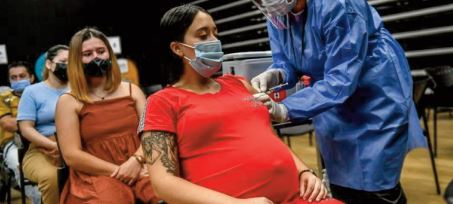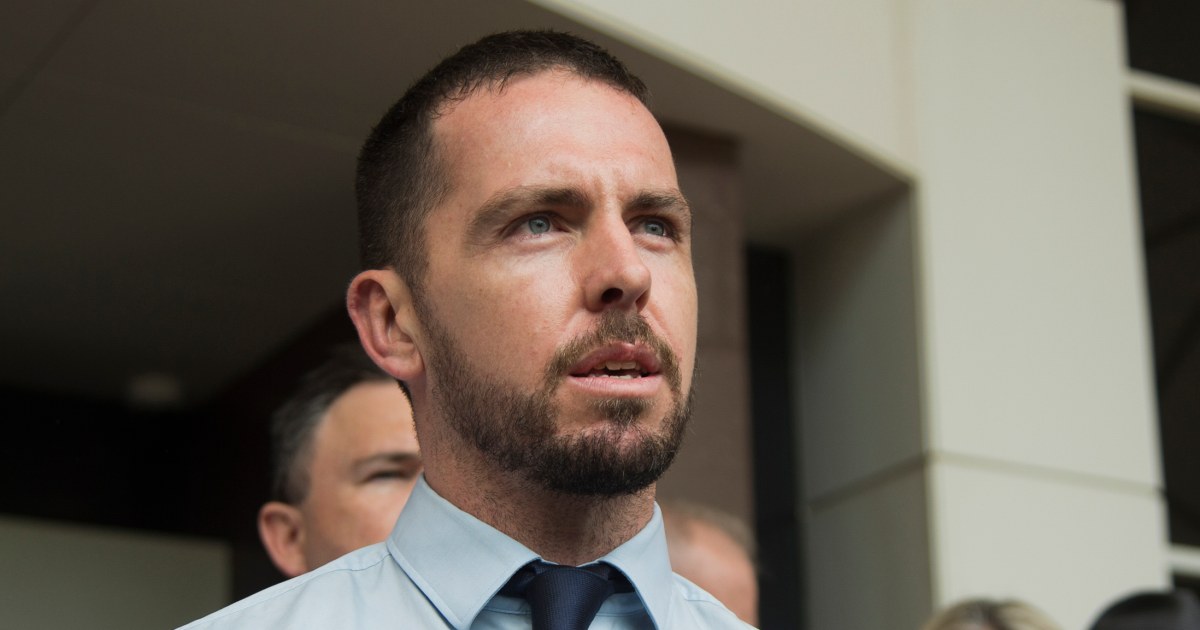Pest Management Regulatory Agency
4 October 2022
ISSN: 1925-0649 (PDF version)
Catalogue number: H113-5/2022-2E-PDF (PDF version)
Table of contents
- Update on the special review of pentachlorophenol
- Background
- Regulatory status of products containing pentachlorophenol
- Appendix I Cancelled products containing pentachlorophenol
Update on the special review of pentachlorophenol
Pursuant to subsection 17(2) of the Pest Control Products Act, Health Canada’s Pest Management Regulatory Agency (PMRA) initiated a special review of all registered pest control products containing pentachlorophenol, based on regulatory decisions to prohibit all uses due to human health and environmental concerns from Switzerland, New Zealand, the European Commission and Japan.
Based on the information from Switzerland, New Zealand, the European Commission and Japan, Health Canada identified the following aspects of concern relating to environment and human health:
Environment
- Persistence, mobility and bioaccumulation (presence in all environmental compartments);
- Potential risk to aquatic organisms;
- Potential risk to terrestrial vertebrates; and
- Release to the environment of micro-contaminants polychlorodibenzodioxins, polychlorodibenzofurans, and hexachlorobenzene.
Human health
- Occupational exposure in wood treatment facilities; and
- Exposure to the general public from treated wood.
Background
Pentachlorophenol is registered as a heavy duty wood preservative in Canada. It is used only at wood preservation facilities for the treatment of railway ties, utility poles and piling and outdoor construction materials.
The Proposed Special Review Decision PSRD2020-03, Special Review of Pentachlorophenol and Its Associated End-use Products Consultation Document underwent a 45-day consultation periodFootnote 1 and proposed cancellation of all uses of pentachlorophenol. Prior to completing the special review decision, the sole registrant of products containing pentachlorophenol notified Health Canada of their intention to discontinue the sale of all registered products and requested a one-year phase-out period. Health Canada has determined that the risks from exposure to pentachlorophenol, under the current conditions of use, are not expected to be imminent and serious over a one-year phase-out period. Therefore, all products containing pentachlorophenol (Appendix I) are cancelled in accordance with subsection 22(3) of the Pest Control Products Act. Based on this, the special review of pentachlorophenol is closed.
Health Canada is publishing this Re-evaluation Note as an update to inform the public of the cancellation of all products containing pentachlorophenol, pursuant to subsection 22(3) of the Pest Control Products Act, and the reasons for the phase-out period.
Regulatory status of products containing pentachlorophenol
The registrant of products containing pentachlorophenol notified Health Canada of their intention to discontinue the sale of all products containing pentachlorophenol and requested a one-year phase-out period to exhaust existing stocks of products in Canada with users (in other words, wood treatment facilities). Consequently, Health Canada has cancelled the registrations of products containing pentachlorophenol, effective 4 October 2022, in accordance with subsection 22(3) of the Pest Control Products Act.
Where risks of concern are not considered imminent and serious, a phase-out period may be implemented to deplete existing stocks of a cancelled product in Canada. In this case, Health Canada has determined that the risks of pentachlorophenol, under the current conditions of use, are not expected to be imminent and serious over a one-year phase-out period for the following reasons:
Environment
- As indicated in PSRD2020-03, pentachlorophenol and its transformation product pentachloroanisole are Track 1 substances under the Government of Canada’s Toxic Substances Management Policy (TSMP). The TSMP is a federal policy developed to provide direction on the management of toxic substances that are released into the environment predominantly from human activity, take a long time to break down, and accumulate in living organisms. The key management objective for Track 1 substances is virtual elimination through pollution prevention strategies that prevent measurable releases from domestic sources. However, risks to aquatic and terrestrial organisms from exposure to pentachlorophenol under the current conditions of use are considered acceptable because wood treatment facilities are strictly regulated with mandatory requirements for operational practices and design requirements to minimize the exposure to the environment. Canadian facilities are required to have environmental monitoring programs in place for soil, water and air and an emergency response plan in the event of an uncontrolled, unplanned, or accidental release. Effluent containing pentachlorophenol cannot be released to aquatic systems. Additionally, the risks of concern from the release of micro-contaminants into the environment are considered acceptable under the current conditions of use because the formation of these micro-contaminants in the production process of pentachlorophenol have been significantly reduced since the implementation of strict measures relating to manufacturing practices of pentachlorophenol and the control measures required for wood treatment facilities. These measures have resulted in reduced environmental releases of these micro-contaminants. Therefore, based on the current conditions of use, imminent and serious risks to the environment are not expected over the phase-out period.
Human Health
- As indicated in PSRD2020-03, all wood treatment facilities in Canada are required to follow risk mitigation measures to protect workers from exposure. The wood preservation industry is required to adhere to the Recommendations for the Design and Operation of Wood Preservation Facilities, Technical Recommendations Document (TRD). The TRD establishes a benchmark for the design and operation of wood preservation facilities to minimize human exposures associated with these facilities. All Canadian facilities using pentachlorophenol must follow the requirements of the TRD. Workers are required to wear specialized personal protective equipment (PPE) at all times when handling pentachlorophenol, treated wood or treatment equipment. The level of protective equipment also increases with increasing potential for exposure to pentachlorophenol (for example, for high exposure scenarios, workers must wear organic solvent impermeable clothing, boots and gloves with a full-face respirator or secondary breathing apparatus).
- Based on existing risk mitigation measures already in place at Canadian wood treatment facilities, occupational risk estimations indicated that short-term occupational exposures to workers in treatment facilities were shown to be acceptable. However, the long-term risks were not shown to be acceptable. As of February 2022, no human incident reports have been received by Health Canada. Considering that risks of concern were from long-term exposure, as well as the risk mitigation measures currently in place in the treatment facilities, imminent and serious risks to human health are not expected over the phase-out period.
- Regarding exposure to the general public from wood treated with pentachlorophenol, the potential risks are limited as treated wood is prohibited from use in residential construction, food/feed storage/production or animal housing, and in playground equipment. As such, the potential risks to the general public were considered to be acceptable.
Therefore, continued possession, handling, storage, and use of existing stock in Canada at the time of cancellation of these products will be authorized under paragraph 21(5)(a) of the Pest Control Products Act during the phase-out period following the schedule below:
- Last date of authorized sale of existing stock of pest control products containing pentachlorophenol in Canada by the registrant: 4 October 2022; followed by,
- Last date of authorized use of pest control products containing pentachlorophenol used to treat wood: 4 October 2023.
During the one-year phase-out period, the manufacture and sale in Canada or import into Canada of these cancelled products containing pentachlorophenol used to treat wood is prohibited.
The registrant is required to continue to provide any incident reports in the manner set out in the Pest Control Product Incident Reporting Regulations and all obligations under those regulations continue to apply during the phase-out period as if the product was registered. In the event a situation arises that requires immediate action by Health Canada, the above phase-out period and conditions may be amended, or the product may be subject to a recall or seized and disposed of in accordance with 21(5)(b) or (c) of the Pest Control Products Act.
The registrant is required to continue to provide a sales report in a manner consistent with section 3 and for the purposes of section 8 of the Pest Control Products Sales Information Reporting Regulationsfor each pest control product, as if the product was registered. This condition is in effect until all reports relevant to the 2022 calendar year have been submitted.
Wood treated with pentachlorophenol:
Information Note – Treated Articles (September 2022) provides regulatory requirements for articles that have been treated with pesticides.
- Sale and installation of wood treated with pentachlorophenol:
- D uring the phase-out period, the use (treatment of wood) of the cancelled pentachlorophenol products is authorized to exhaust existing stock of these products. Sale or installation of wood treated with pentachlorophenol is permitted during the same period in order to exhaust the treated wood in Canada (i.e., existing inventory of treated wood, wood treated during phase-out period, or treated wood imported during phase-out period). After 4 October 2023, sale, import and installation of wood treated with pentachlorophenol is prohibited.
- Wood treated with pentachlorophenol that was installed/already in service as of 4 October 2023 will not be required to be replaced/removed.
Appendix I Cancelled products containing pentachlorophenol
| Registration number | Marketing class | Registrant | Product name |
|---|---|---|---|
| 22024 | Technical | KMG-Bernuth Inc. | KMG Technical Penta Blocks |
| 26110 | Commercial | KMG-Bernuth Inc. | Dura Treat 40 |
| 28838 | Commercial | KMG-Bernuth Inc. | KMG Penta Blocks |
Note: This article have been indexed to our site. We do not claim legitimacy, ownership or copyright of any of the content above. To see the article at original source Click Here













